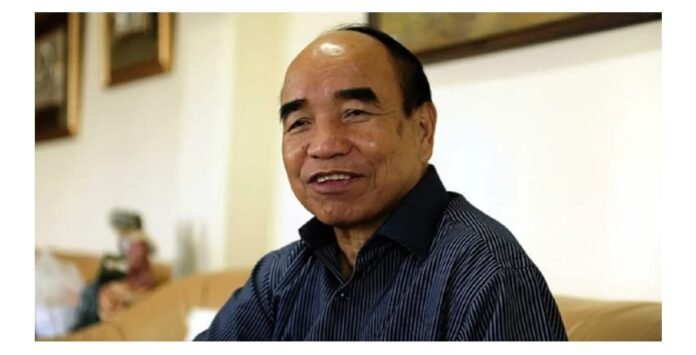Mizoram Chief Minister Zoramthanga recently reiterated his government’s position on the concept of “Greater Mizoram” and emphasized that a state government cannot directly interfere in the internal affairs of neighboring states like Manipur. In this article, we delve into the Chief Minister’s statement, highlighting the significance of non-interference, the historical context of “Greater Mizoram,” and the balance between regional aspirations and federal principles within India’s governance structure.
The Principle of Non-Interference and Regional Autonomy (approximately 180 words): Chief Minister Zoramthanga’s statement reflects the core principle of non-interference in the internal affairs of other states. In a federal system like India, regional autonomy is a crucial aspect that allows states to govern their own internal matters while cooperating with the central government on national issues. This principle ensures the preservation of states’ individuality, while fostering cooperation and harmonious coexistence among them.
The concept of “Greater Mizoram” stems from the historical and cultural connections between Mizoram and the contiguous areas of Manipur. Mizoram, a state in northeastern India, shares a border with Manipur, and the region has witnessed intermixing of Mizo tribes across these areas over centuries. As a result, there has been a desire among some sections of the Mizo community to reunite these contiguous areas under a single administrative unit.
While expressing his government’s support for the idea of “Greater Mizoram,” Chief Minister Zoramthanga emphasized that a state government cannot directly interfere in the internal matters of other states, including Manipur. This clarification underscores the importance of maintaining the principles of federalism and respecting the autonomy of individual states.
The Chief Minister’s stance strikes a delicate balance between advocating for regional aspirations and adhering to the constitutional framework of India. While his government supports the idea of “Greater Mizoram,” it recognizes that achieving this objective should be pursued through peaceful means and respectful dialogue with the concerned states. This approach reflects the spirit of cooperative federalism, where states work collaboratively to address common challenges and foster harmonious relationships.
Chief Minister Zoramthanga’s recent statement reaffirms his government’s commitment to non-interference and clarifies their position on the concept of “Greater Mizoram.” By emphasizing the importance of respecting the autonomy of other states, the Chief Minister underscores the principles of federalism and cooperative governance. While the idea of “Greater Mizoram” represents historical and cultural connections, it is essential to navigate these aspirations within the boundaries of constitutional frameworks and peaceful dialogues. As Mizoram moves forward, the Chief Minister’s words serve as a reminder of the need to balance regional aspirations with the principles of federalism and mutual respect among states.


